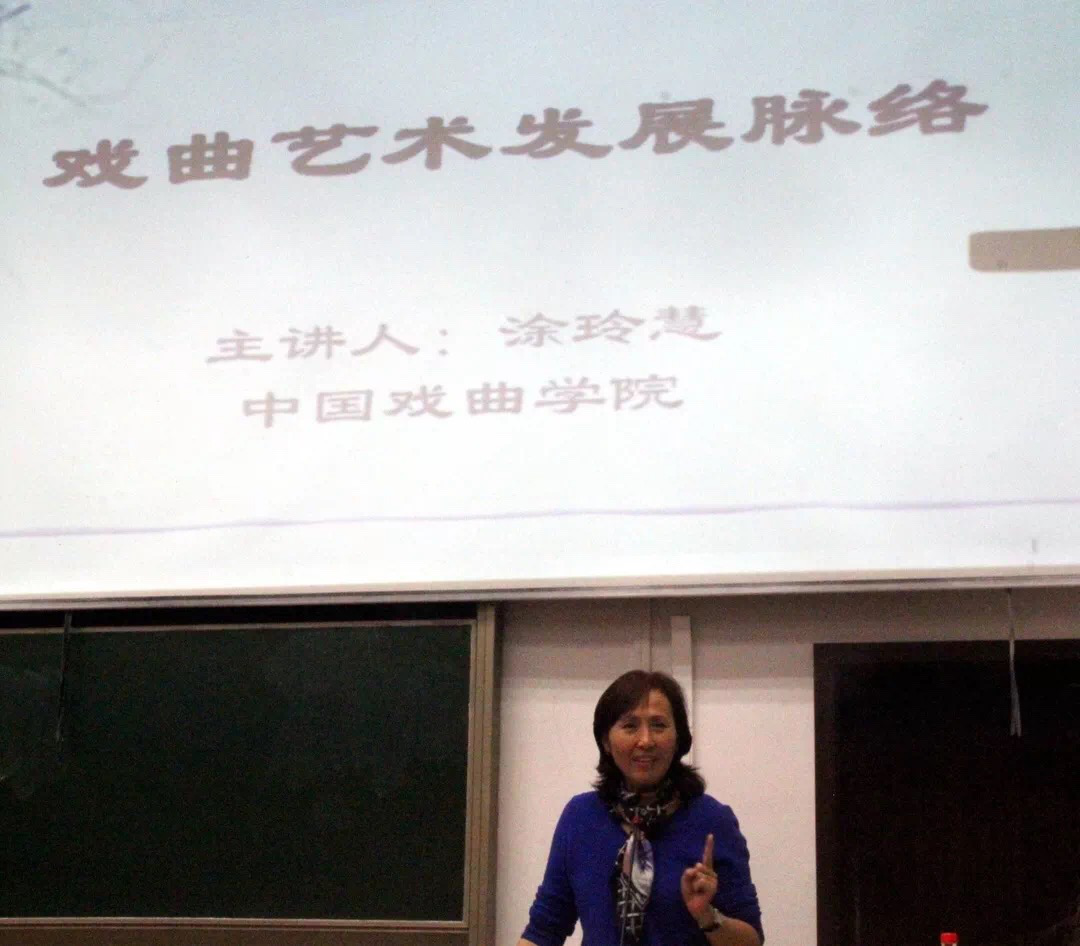On Nov.15, Tu Linghui, professor of the National Academy of Chinese Theatre Arts, delivered a lecture on Chinese opera in No.4 Teaching Building of Wuhan University. The lecture mainly traced back to the origin of Chinese opera while anticipating its future.
"If Chinese opera became extinct, one third or even half of Chinese traditional culture would be lost." Professor Tu quoted a line from Feng Qiyong, a Chinese historian, to begin her lecture.
Chinese opera is a symbol of the changes and developments in Chinese culture, history and art. Early forms of Chinese opera originated in ancient songs and dances of primitive tribes, and developed for years until they became the Chinese opera in the Tang Dynasty(618-907A.D.). Later, it reached its mature form in the Song Dynasty(960-1279A.D.), and,during the Ming and Qing dynasties, ascended to its flourishing period from the 14th to 20th century.
"Chinese opera is a kind of performance that tells stories via songs and dance.", Professor Tu said. Four basic artistic skills of Chinese opera include Chang(singing in acertain tune to express the sentiment of the dramatic persona),Nian(thespecific pattern of uttering the lines),Zuo(the dancing and acting of the actor or actress) and Da(the martial art usingacrobatic actions), each of which are anequally important part of the performance.
Professor Tu personall presented the differences in Chang and Nian among local operas in Hubei province, showing that even short geographical distance can produce obvious differences in opera. An audience pointed out the reason for this phenomenon by saying, “I'm from a town in Fujian province, but I'm not even able to understand the dialect in the nearby town.” Due to diverse dialects in the Chinese language, Chinese opera has more than 360 variations.
Physical performance in Chinese opera must adhere to certain rules, which are Zuo and Da. “You have to make your body movements more artistic.”, said professor Tu, demonstrating the way of "slipping" in Chinese opera to distinguish art performance from adaily action.

Professor Tu giving the lecture
Then, several members of theaudiences were invited onto the stage to learn Chinese opera performance. Guided by Pprofessor Tu, they put on Shui Xiu, costumes with long sleeves. By flapping the sleeves in particular directions, the performer can express different emotions of the character.
"It's much harder than I imagined.", Lin Shenyan, a postgraduate student from the Center of Traditional Chinese Cultural Studies of Wuhan University, commented onher experience after performing in Shui Xiu. "I definitely cannot master it in a short time, and I now appreciatethat all Chinese opera performers have completed years of practice.", she added.
In the end, a student from the School of History raised a question that caused everyone to think more deeply. “We can see that some elements of Chinese opera have been integrated into modern arts such as pop songs and costume designing.” Professor Tu shared her understanding of this phenomenoby saying, “I think it shows that the young generation is more aware of the charm of Chinese traditional art, yet the engagement with this art formis far from enough”
Professor Tu believes that innovation in Chinese opera is needed in order to attract more young Chinese people and those from other cultures to this performance art. With further development and expansion across the globe, this Chinese traditional art is expected to increase in popularity both at home and abroad.
Tu Linghui is a Chinese National Class I stage actress. She has won the 4th Plum Performance Award (the highest honor in Chinese opera) and the 1st Wenhua Performance Award with the Gan operas The Injustice Done to Dou E and The Story of the Wooden Hairpin. Tu has also directed Chinese operas, among which two have been awarded Class I Performance Awards.
Photo by Chen Wenbei
Edited by Hu Yue, Zheng Yayun, Shi Weiya and Hu Sijia